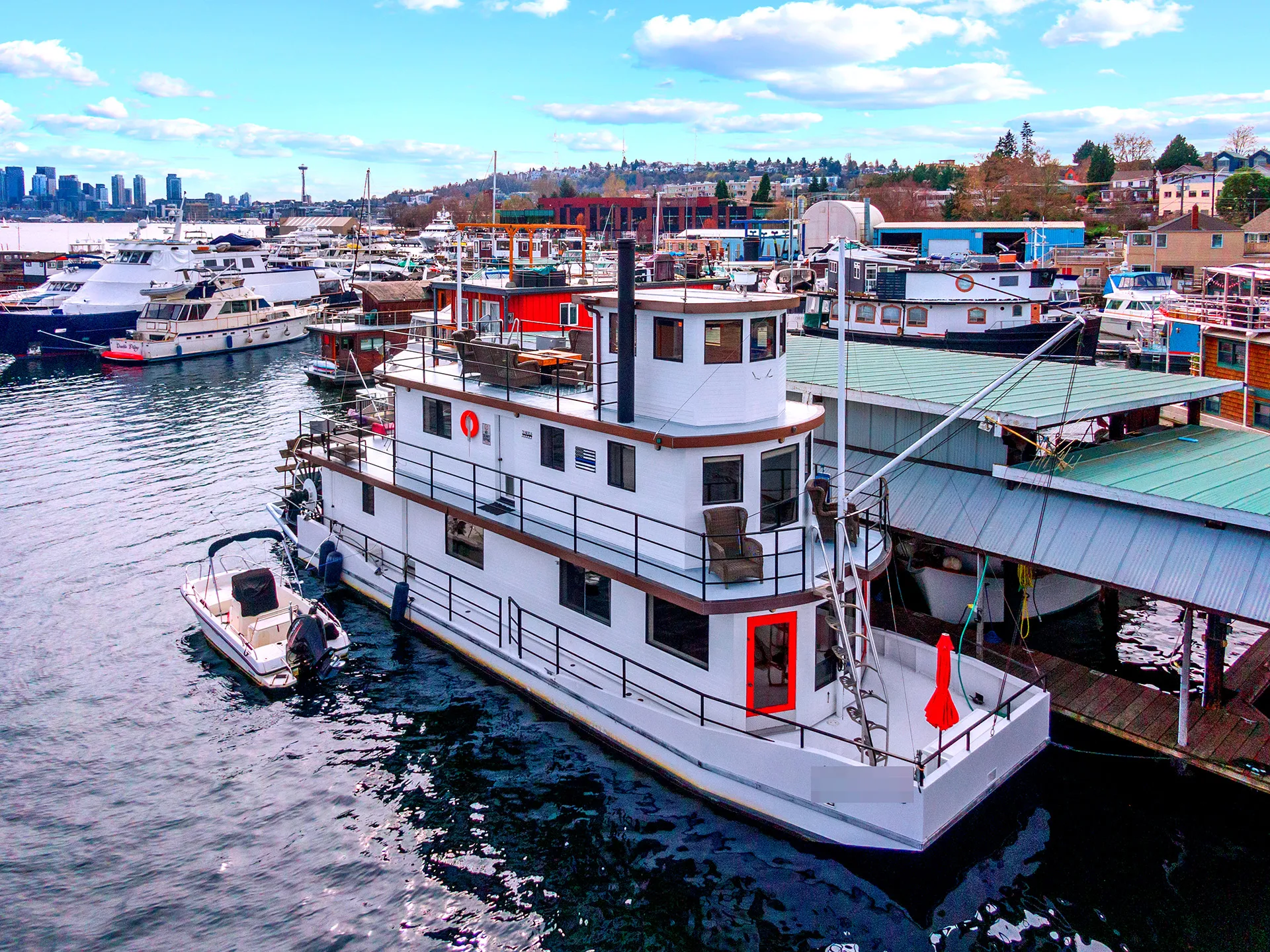
June 2023 Seattle Houseboat Market
There are currently 28 floating properties listed in King County with more coming on the market soon. If you've ever dreamed of living on the water this is a wonderful opportunity with prices ranging from $125,000 up to 5 million depending on the property type.
People frequently asked me what's the difference in a floating home and a houseboat. The simplest explanation is floating homes are connected to water sewer, electricity and sometimes gas. They have stationary locations and do not move from moorage to moorage sites.
There are approximately 430 floating homes in the city of Seattle. They're located in primarily co-op-owned docks or fee-simple-owned docks. A co-op dock is where you own a percentage of the space for the footprint you're floating home is in and cooperatively share ownership of the remaining common areas. Homeowner dues are typically a little higher than in a co-op dock because you're sharing the property taxes. You're then taxed on your floating home at a lower price. The fee simple property means, basically you own the land underwater and above water for the space you are in. Property taxes tend to be much higher as a result and homeowner dues a little lower.
There are approximately 230 houseboats also known as Floating On Water Residences (FOWRs), have a quick disconnect from water and electricity and have black water tanks that are pumped by local pump-out services. Houseboats are primarily located in recreational marinas, and long-term lease docks, with only a couple owned condo docks in Seattle.
The city of Seattle (DCI) manages licensing and approvals for a FOWR and Floating Home, and they are capped at the current level so if you see a new one being built it is a replacement of an existing floating property that was destroyed or removed from the Seattle Shoreline Master Plan areas.
There are some important considerations when buying a floating home or a houseboat such as the inspection process, flotation type, moorage fees, insurance, and financing. You should absolutely be working with an experienced houseboat specialist such as Special Agents Realty, Linda M Bagley. when considering one of these properties.

Summary of the key differences between floating homes and houseboats in Seattle's King County.
Inspection process: This is a crucial step when buying a floating home or a houseboat. It's not just about the condition of the floating home above water or houseboat boat itself but also about its types of floatation and maintenance aspects. The inspector for the above-water and below-water should be experienced in inspecting these specific types of floating properties. They should check for water damage, rot, the condition of seals and caulking, and other potential issues. It's also important to consider the condition of the dock and the stability of the moorage location.
- Flotation type: Floating homes and houseboats rely on some type of flotation device to remain buoyant. The type of flotation used can greatly affect the value, stability, and durability of the home. Common floating home flotation types include, concrete floats, foam billets encased in plastic, and old-growth logs supported by barrels filled with air Houseboats are wood with fiberglass overlay, steel, aluminum, concrete, plastic dock floats, and old wood beams. Each type has different maintenance requirements..
- Moorage fees: Moorage refers to the place where a floating home or houseboat is kept. Fees can vary greatly based on the location and the amenities provided. It's important to understand what is included in your moorage fee. Some moorage locations are in owned, coop-owned, long-term leases or month-to-month and include utilities and maintenance in the fee, while others do not. You will need to clearly understand the differences.
- Insurance: It's important to have insurance that covers both the structure and the possible maritime liability such as derelict vessel insurance required by a few marinas for a houseboat. This can be more complicated and more expensive than regular homeowners insurance. It's also important to note that most insurance companies do not provide coverage for floating homes or houseboats at all.
- Financing: Financing a floating home or houseboat can be more challenging than a traditional home. Many banks are hesitant to lend for these types of homes because they are seen as higher risk. Talk to an experienced broker to find a specialty lender, and be prepared to pay a higher interest rate and a larger down payment.

Working with an experienced specialist to navigate you through the process is crucial and a real estate agent, like Linda M Bagley from Special Agents Realty, who is knowledgeable about floating homes and houseboats can make the process much easier. Professionals understand the unique challenges and rewards of living on the water and can provide valuable guidance and support.
.avif)



